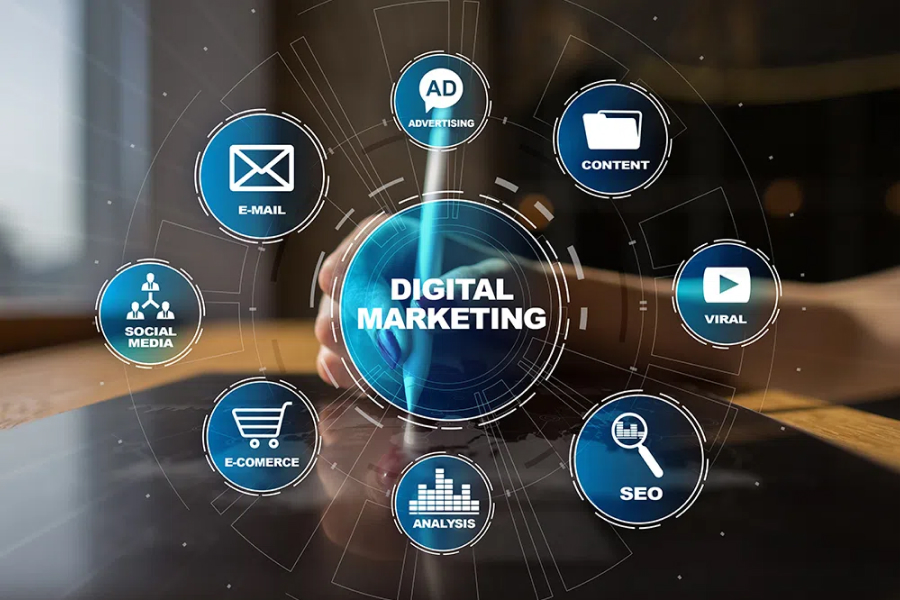In today’s digital age, the role of a Digital Marketing Specialist has become pivotal for businesses aiming to thrive in a competitive market. As organizations increasingly rely on online platforms to connect with their target audiences, the demand for skilled professionals who can navigate the complexities of digital marketing has skyrocketed. This article delves into the responsibilities, skills, tools, and career prospects of a Digital Marketing Specialist, providing a thorough understanding of this dynamic profession.

Who is a Digital Marketing Specialist?
A Digital Marketing Specialist is a professional responsible for creating, implementing, and managing online marketing strategies to promote a company’s products or services. They leverage various digital channels, such as social media, search engines, email, and websites, to enhance brand visibility, generate leads, and drive conversions. These specialists possess a blend of analytical and creative skills, enabling them to craft campaigns that resonate with target audiences while achieving measurable results.
Key Responsibilities
The role of a Digital Marketing Specialist encompasses a wide range of tasks, including:
- Search Engine Optimization (SEO): Enhancing website visibility by optimizing content, keywords, and technical elements to rank higher on search engine results pages (SERPs).
- Pay-Per-Click (PPC) Advertising: Managing paid advertising campaigns on platforms like Google Ads and social media to drive targeted traffic.
- Content Marketing: Creating and distributing valuable, relevant, and consistent content to attract and engage a defined audience.
- Social Media Marketing: Building and maintaining a strong presence on platforms such as Facebook, Instagram, LinkedIn, and Twitter to connect with audiences and foster brand loyalty.
- Email Marketing: Designing and executing email campaigns to nurture leads and retain customers.
- Web Analytics: Monitoring and analyzing website traffic, user behavior, and campaign performance using tools like Google Analytics.
- Campaign Management: Planning, executing, and evaluating marketing campaigns to achieve business objectives.
Essential Skills for a Digital Marketing Specialist
To excel in this role, a Digital Marketing Specialist must possess a diverse skill set, including:
- Analytical Skills: The ability to interpret data, measure campaign performance, and make data-driven decisions.
- Creativity: Crafting compelling content and innovative campaigns that capture audience attention.
- Technical Proficiency: Familiarity with tools and platforms such as Google Ads, Facebook Ads Manager, and SEO software.
- Communication Skills: Conveying ideas effectively through written and verbal communication.
- Adaptability: Staying updated with industry trends and adapting strategies to evolving technologies and consumer behaviors.
- Time Management: Prioritizing tasks and managing multiple projects efficiently.
- Problem-Solving: Addressing challenges and optimizing campaigns for better outcomes.
Tools and Technologies
Digital Marketing Specialists rely on a variety of tools to streamline their workflows and enhance campaign effectiveness. Some of the most popular tools include:
- Google Analytics: For tracking website traffic and user behavior.
- SEMrush and Ahrefs: For keyword research, competitor analysis, and SEO insights.
- HubSpot: For managing customer relationships and automating marketing tasks.
- Hootsuite and Buffer: For scheduling and managing social media posts.
- Canva and Adobe Creative Suite: For designing visually appealing graphics and content.
- Mailchimp: For creating and managing email marketing campaigns.
- Google Ads and Facebook Ads Manager: For running and optimizing paid advertising campaigns.
Career Path and Growth Opportunities
The career path of a Digital Marketing Specialist offers ample opportunities for growth and specialization. Entry-level positions often involve assisting with campaigns, analyzing data, or managing social media accounts. With experience, professionals can advance to roles such as:
- Digital Marketing Manager: Overseeing a team of specialists and coordinating comprehensive marketing strategies.
- SEO Specialist: Focusing exclusively on optimizing websites for search engines.
- Content Marketing Manager: Managing content creation and distribution to align with brand goals.
- PPC Specialist: Specializing in paid advertising campaigns.
- Social Media Manager: Strategizing and executing social media initiatives.
Challenges Faced by Digital Marketing Specialists
Despite its rewarding nature, the role of a Digital Marketing Specialist comes with challenges, such as:
- Keeping Up with Trends: The digital marketing landscape evolves rapidly, requiring continuous learning and adaptation.
- Competition: Standing out in a crowded online space demands creativity and strategic thinking.
- Budget Constraints: Achieving optimal results with limited resources can be challenging.
- Measuring ROI: Demonstrating the return on investment for digital campaigns requires robust analytics and reporting.
How to Become a Digital Marketing Specialist
Aspiring Digital Marketing Specialists can follow these steps to build a successful career:
- Education: While a degree in marketing, business, or communications is beneficial, it’s not mandatory. Many professionals enter the field through certifications and self-learning.
- Certifications: Gaining certifications in areas like Google Ads, HubSpot, or social media marketing can boost credibility and expertise.
- Hands-On Experience: Internships, freelance projects, or personal ventures provide practical knowledge and portfolio-building opportunities.
- Networking: Joining professional communities and attending industry events can open doors to job opportunities and mentorship.
- Continuous Learning: Staying updated with industry trends through blogs, webinars, and online courses is essential for long-term success.
The Future of Digital Marketing
The digital marketing landscape is poised for significant growth, driven by technological advancements and changing consumer behaviors. Emerging trends such as artificial intelligence, voice search, and influencer marketing are reshaping the industry. As businesses continue to prioritize online channels, the role of a Digital Marketing Specialist will remain indispensable.
Conclusion
A career as a Digital Marketing Specialist offers a unique blend of creativity, strategy, and technical expertise. It’s a field that not only promises professional growth but also allows individuals to make a tangible impact on a company’s success. By mastering the necessary skills, staying adaptable, and embracing continuous learning, aspiring specialists can carve out a rewarding career in this dynamic and ever-evolving domain.